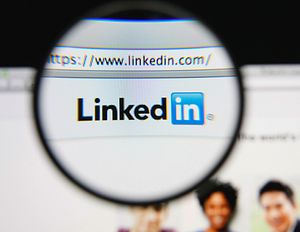My last article for The Diplomat poked a little fun at the Global Times for its childish and vitriolic reaction to U.S. condemnations of Chinese human rights violations in the run up to the Tiananmen anniversary. The article was published on May 31 and was censored from social media on June 12. Normally, that wouldn’t be notable in China, but the article was censored by LinkedIn — censoring non-Chinese citizens, on an American website, to protect the Chinese government’s feelings.
Many LinkedIn journalists, politicians, and political liberals ended up getting emails like the one above telling them that their post “contained content prohibited in China.” Prior to the Tiananmen anniversary, Charles Mok, a Hong Kong legislator, got that email, later commenting on Twitter, “LinkedIn openly supports the censors of China and should be condemned for such acts.” Hong Kong is supposed to be beyond the reach of the Chinese censors, but, as many are finding out, corporate appetites are making the long arm of Chinese censorship much, much longer.
Of course, one might make an argument for doing business in China under the government’s ever-watchful gaze by censoring the politically liberal, but it’s a hell of a lot harder to make the same case for censoring content from China to the rest of the world. Doug Madey, LinkedIn corporate communications manager, said, “We are filtering certain content from appearing to members who are within China. We are also filtering certain content posted by members within China from appearing anywhere.” But, why? Surely the whimsy of the Chinese censors is a pseudo-legal foothold only in China; nonetheless, LinkedIn is taking no chances.
Concerns over LinkedIn censorship were raised in February when, in an interview with The Wall Street Journal, LinkedIn CEO Jeff Weiner said, “We are strongly in support of freedom of expression and we are opposed to censorship…[but] that’s going to be necessary for us to achieve the kind of scale that we’d like to be able to deliver to our membership.” So far that scale is over five million users on its English-language site as of May, which puts China very near the top 10 nations using LinkedIn.
Now, the article I wrote might have been a bit cheeky (and admittedly “rascally varmints” was only used in the English edition), but it hardly warrants censorship from a second-rate social networking service an ocean away for the benefit of the CCP. However, LinkedIn’s censorship is at least a bit more polite than China’s, which fails to notify its victims; they informed me: “LinkedIn determined that recent public activity you posted (such as comments, or items shared with your network) contained content prohibited in China. As a result, this content will not be seen by LinkedIn members.”
The issue is one of caprice, as, according to their user agreement, LinkedIn will, “block content that you have authored due to the local legal requirements of the country from which you access LinkedIn.” In my years in China, I have never come across a specific law forbidding the articles on the Tiananmen massacre — though one would be forgiven for thinking there is one. LinkedIn, therefore, was not cooperating with the laws of China and was simply censoring information from China based on the ever so delicate feelings of the Chinese Communist Party, the sensitive dears.
LinkedIn’s decision to censor content in China drew more than a little comment before the Tiananmen anniversary: The Guardian said LinkedIn was “under fire”, Voice Of America said LinkedIn “faces flak”, and CNN reported that the networking site “draws fire”. So, this is just a way of saying “bang” post-Tiananmen anniversary.
Everyone from Bloomberg to Reader’s Digest has had to make concessions with their content to be part of China’s warped world of publication and social media, but where is the line between capitulation and aiding in human rights abuses — a line Cisco came so dangerously close to crossing? Compared to other social networking sites like Twitter and Facebook (both blocked for years), LinkedIn is living the Chinese Dream, but now, LinkedIn is about to learn the most important lesson of the Chinese internet: it doesn’t get better.

































